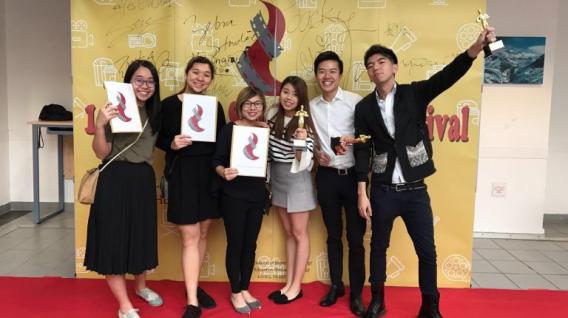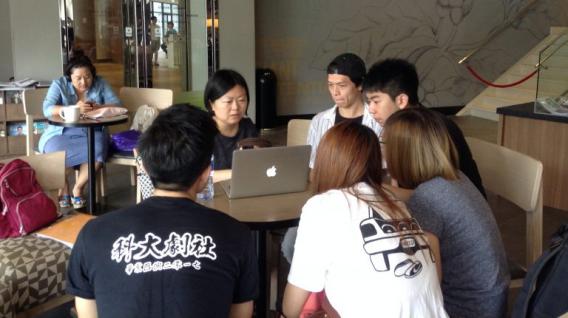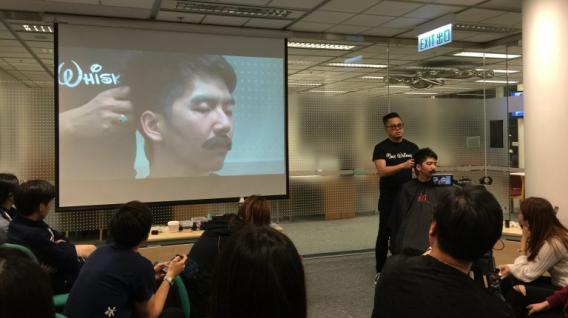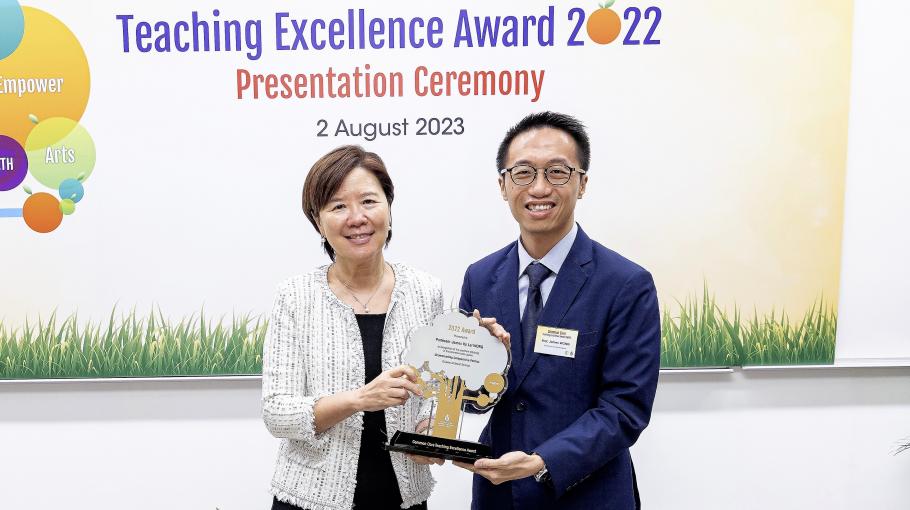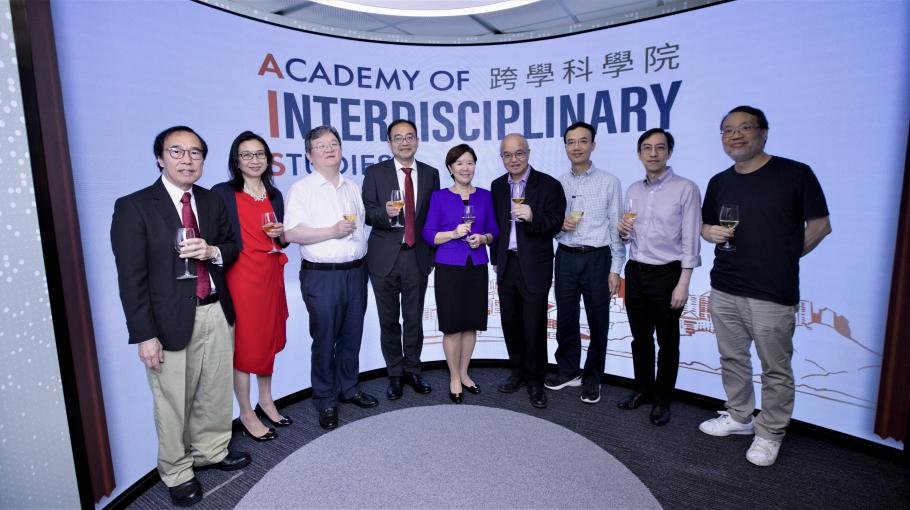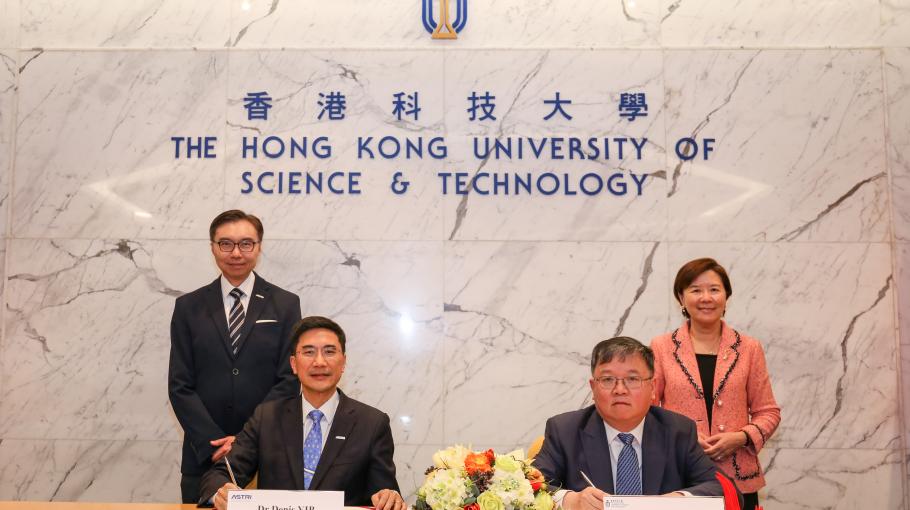It is common to hear non-arts undergraduate students complain about being forced to take humanities classes that have nothing to do with their area of study or career aspirations.
But Dr. Daisy DU Yan, Associate Professor from Division of Humanities, thinks otherwise. Scientists and engineers should study arts and humanities to better understand what their inventions mean to society and humanity. It is Dr. Du’s mission to involve more and more students in her classes and help them become critical and creative thinkers with a sense of empathy.
“Humanities has soft power. Sometimes it can have an even bigger influence on people than scientific inventions,” she adds, bringing examples from history, from Shakespeare to LU Xun, an impactful Chinese writer who started out studying medicine, but later became a writer as he believed in the greater power of words than medicine on people.
Today, students are visually oriented, and quite addicted to visually oriented images, according to Dr. Du. She thinks films and animation are more democratic than literature, more popular and more easily accessible than books. “They are a good medium to teach students humanitarian values,” she says.
Dr. Du is a renowned researcher of Chinese animation. She was the first to discover the importance of animated films produced in China during WWII and helped to establish it as a discipline in mainstream research. Her fascination with anime started when she was pursuing her PhD in the US where anime could be a standalone research topic. But she was also curious that her peers only discussed Japanese anime, prompting her to dig into Chinese animation, a novel research area.
In her PhD thesis, which Dr. Du finished in 2012, she mentioned the influence of Chinese animation on Japanese animation and its international success in the 1950s and 70s, under Mao Zedong’s reign. She published her book Animated Encounters: Transnational Movements of Chinese Animation, 1940s-1970s this year.
Dr. Du also thinks now is especially the right time to teach humanities to students regardless of their disciplines because of the changing perception of technology. For instance, changes in Japanese anime’s depiction toward technology is clear evidence. In the 1960s, anime presented technology as something good and helpful for humans. However, contemporary anime often displays technophobia, featuring mad scientists who create robotic monsters that could destroy mankind.
“Science might get totally out of control. Robots could serve us, but sometimes they might go astray. I want our students to be fully aware of what they are doing and have humanitarian concerns and values, so that science and technology can be channelled into its proper course,” she says.
However, humanities classes are usually unpopular among science and business students as they fear there would be a lot of reading and homework as well as an exam. But Dr. Du’s first experiential learning course in the Division of Humanities, “Independent Cinema in Contemporary China” in 2017, as she describes, is a course of the students, by the students, for the students. Unlike traditional courses that are based on lectures, readings, and exams in a fixed classroom, there was no reading, writing, or homework in this course.
Rather, Dr. Du encouraged students to venture outside and engage more with our society with a hands-on independent filmmaking project. “I divided students into nine small groups. Every group is a studio and every studio does a teamwork project. They make a short movie of about 10 minutes as a final project. They put into practice what they have learned, show their understanding of the topic and express their own opinion,” she says.
Technological advancement has made filmmaking much easier and fun for students. They can make a film with a mobile phone and simple equipment. Apart from providing cameras and equipment for shooting, professionals from the film industry and make-up artists were invited as guest speakers to teach students first-hand and practical skills in production and management of filmmaking.
The short films produced by students competed in the first Redbird Student Film Festival in 2017 organised by Dr. Du, and were judged by a professional panel of filmmakers. The most outstanding films also made it to some international festivals where they received more accolades.
The experiential learning opportunity strengthened students’ presentation and social, teamwork and leadership skills, as well as critical thinking that help form their own opinions and competencies that will be advantageous in their future career.
Due to tremendous popularity of the course, Dr. Du plans to run it once in every four years so that all undergraduates who would like to learn filmmaking can enrol in the course during their four-year studies. As Dr. Du stresses, who says humanities education is just for arts students?


